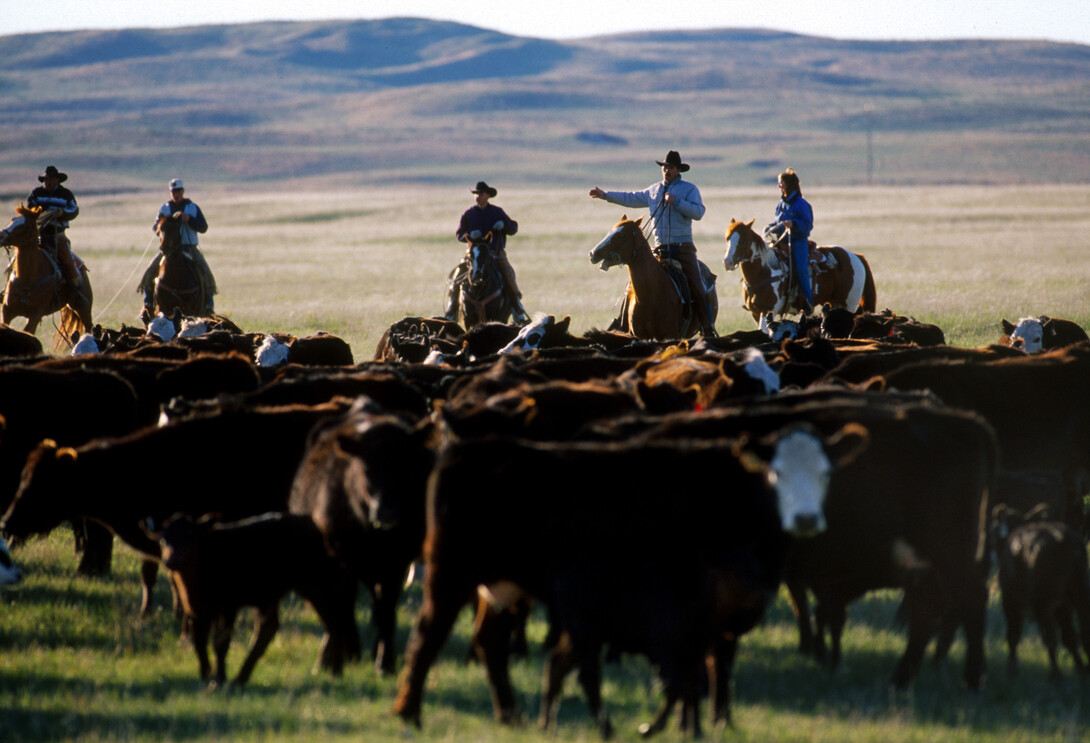
The University of Nebraska-Lincoln houses two important individuals that have deep roots of involvement in the Beef Quality Assurance Program, Deb Van Overbeke and Jesse Fulton. When I sat down to interview both of them about their time in BQA and what it means to them, both shared a key aspect that was important to them: producer education.
The Beef Quality Assurance Program started in the late 1970s, and a few years later in 1987 Nebraska started its BQA Program. The main goal of BQA at its start was to ensure that beef was free of volatile chemical residues. Over time the program evolved and adapted to the ever-changing beef industry by completing BQA Audits, which began in 1991. The BQA Program is constantly evolving and adapting to ensure the needs of producers are met, as well as ensuring the quality of beef is protected. The current program involvement has been voluntary for producers; however, many producers currently choose to take part in the BQA program.
Deb Van Overbeke currently serves as the director of the Animal Science Program at UNL and previously had coordinated BQA for Nebraska Cattlemen. Deb discusses how BQA came about as a way for the producers to address quality concerns through their Beef Quality Audits without having a federal system in place.
When Deb started working for BQA, it was originally run by Nebraska Cattlemen and has since grown immensely. During the early years of BQA Deb explains, producers did not see the benefits or fully understand why they needed to be a part of BQA. As time went on, producers increasingly joined BQA to receive additional education.
“BQA is simply the right thing to do,” VanOverbeke said.
Packers, meanwhile, wanted beef from producers that were BQA certified.
Deb spent time serving BQA Audits throughout her time working for BQA. During these audits, BQA carried out a comprehensive evaluation on the beef industry and its products to ensure there were efforts to improve the quality of beef going to consumers. These audits started in 1991, are completed every five years, and focus on several topics associated with producer education.
Jesse Fulton currently serves as the director of Nebraska Beef Quality Assurance but has always had a passion for the beef industry. He was first introduced to the BQA Program in 2011 when he was certified during college. Upon graduating with his master’s degree, he was hired by National Cattlemen's Beef Association in 2015 as a part of their Producer Education team. Jesse started working alongside the National BQA Audit team, as National Cattlemen’s Beef Association was the contractor for the beef checkoff overseeing the National BQA Audit.
As a result, Jesse continuously worked alongside BQA on various tasks and when the opportunity arose to serve as the director of Nebraska BQA, he knew it would be the perfect fit to take his passion for the beef industry and make it his job.
Jesse appreciates BQA for its producer education and because BQA was founded by producers themselves without government regulation. Through his BQA work, Jesse has been able to provide producers with better and safer methods of beef production. He has also helped with the BQA Transportation Program, which provides education to beef transportation companies to ensure the proper welfare of animals that will later be harvested and sold to consumers.
With the dedicated leadership of individuals like Deb Van Overbeke and Jesse Fulton, BQA has played a pivotal role in advancing the quality and safety of beef production in Nebraska and nationwide. From BQA’s beginnings in the 1970s to its current role, the program has continuously adapted to the changing landscape of the beef industry. Both Deb and Jesse emphasize the importance of producer education in ensuring that beef is produced responsibly, safely and ethically. Through their work and the work of many others, BQA has not only helped producers improve their practices but also reinforced its commitment to both product quality and animal welfare. As the program continues to evolve, it stays a key aspect of the beef industry.
Editors note: KaytLynn Lemly is a student in the College of Agricultural Sciences and Natural Resources at the University of Nebraska—Lincoln.







